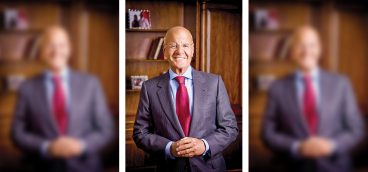Breaking the Ice

When Apple co-founder Steve Wozniak takes the Carnegie Music Hall stage Oct. 10, it will mark the 10th anniversary of what started as the Pittsburgh Middle East Institute and has grown to become the American Middle East Institute.
The brainchild of founder Simin Curtis, the Institute has become an important player in the region’s economic and cultural development strategies, building connections between U.S. companies and institutions in the Middle East, through its extensive government and corporate ties in both.
The marquee event is the annual October conference, which gives U.S. business leaders the chance to get to know dignitaries from multiple Middle Eastern countries and weigh in on key issues. But the Institute also has notched a growing number of accomplishments: immersive language institutes and live/study programs for U.S. college students, overseas conferences, hosting and facilitating numerous delegations from and to the Middle East and Pittsburgh, spearheading cultural and religious initiatives and facilitating millions of dollars in business deals.
The American Middle East Institute goes onto our pedestal as an example of what a small band of committed Pittsburghers with vision can do to improve relations and prospects for the region and the world.
Investing in Science
PPG and the PPG Foundation deserve congratulations for expanding their partnership with the Carnegie Science Center with a $7.5 million gift, the largest donation in the Center’s 36-year history. The money is earmarked for the Science Center’s new PPG Science Pavilion, the centerpiece of more than $42.5 million in additions and improvements, including STEM learning labs, a new conference and event space overlooking the city skyline, two new permanent exhibitions (H2Oh! which explores the science and aquatic life of the rivers, and BodyWorks), and others including replacing the Omnimax theater. The Pavilion will open next year.
State Pension Reform
It’s the kind of work that’s so difficult and so tedious— because it involves persuading the state legislature to take what may be unpopular stands—that nearly everyone just throws up their hands and says “it’ll never change.” But for the Allegheny Conference on Community Development, it’s been one of the holy grails of Pennsylvania public policy, and the civic group hasn’t given up on it for 15 years.
“It” is public pension reform. And finally, in June, Governor Tom Wolf signed into law landmark legislation to change the state’s public pension systems for state and public school employees. The law will provide new workers with a choice of retirement plan options including a partial—or hybrid—defined contribution plan as well as a full defined contribution option structured like 401(k) style plans implemented in the private sector.
The changes are designed to ameliorate the more than $60 billion in unfunded liability of the State Employees’ Retirement System and the Public School Employees’ Retirement System. Those rising pension costs squeeze the state’s ability to fund all sorts of services, including schools, infrastructure and public safety.
Next up? Attacking municipal pension reform. Pennsylvania has about one quarter of the nation’s underfunded municipal pensions—which similarly bleed communities across the state from providing needed services.





